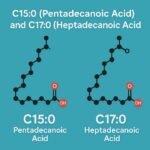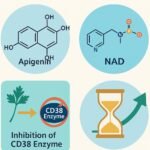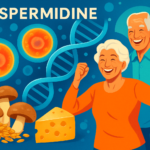TMG, also known as Trimethylglycine, is a naturally occurring compound present in various foods and dietary supplements. In recent years, it has garnered attention for its potential health benefits.
Understanding TMG
TMG, or Trimethylglycine, is a fascinating organic compound that has garnered significant attention in the field of biochemistry. It is derived from the amino acid glycine and is commonly referred to as betaine due to its abundance in sugar beets. The discovery of TMG in sugar beets opened up a whole new realm of possibilities for researchers, as they began to unravel the intricate role this compound plays in the human body.
TMG, in its simplest form, is a methyl donor. Methyl groups, consisting of one carbon atom and three hydrogen atoms (-CH3), are essential for various biochemical reactions. These reactions, known as methylation, are involved in DNA synthesis, protein function, and neurotransmitter production. Without TMG, these vital processes would be compromised, leading to a cascade of negative effects on overall health and well-being.
The Importance of TMG in the Body
TMG serves as a methyl donor, contributing methyl groups to various reactions. Methylation, a chemical process, is involved in DNA synthesis, protein function, and neurotransmitter production. Therefore, TMG’s role as a methyl donor is crucial for maintaining overall health and well-being.
The importance of TMG in the human body cannot be overstated. As a methyl donor, TMG plays a pivotal role in numerous physiological processes. One of its primary functions is to facilitate the conversion of homocysteine, an amino acid, into methionine, another essential amino acid. Methionine serves as a building block for proteins, which are the fundamental components of our body’s structure and function. Without TMG’s involvement in this conversion process, the production of proteins would be severely hindered, leading to a myriad of health issues.
Furthermore, TMG’s role as a methyl donor extends beyond protein synthesis. It is also involved in the methylation of DNA, a process that regulates gene expression. By adding methyl groups to specific regions of DNA, TMG helps determine which genes are turned on or off, influencing various physiological functions. Additionally, TMG contributes to the methylation of neurotransmitters, such as dopamine and serotonin, which play crucial roles in mood regulation and cognitive function.
How TMG Works
At a molecular level, TMG works by donating a methyl group (-CH3) to other molecules, a process known as methylation. This transfer of a methyl group is a key step in numerous biochemical reactions that are vital for maintaining optimal health. One of the most notable reactions involving TMG is the conversion of homocysteine, an amino acid, into methionine. This conversion is crucial for protein synthesis, as methionine serves as a building block for proteins.
Moreover, TMG’s methyl donation capabilities extend beyond protein synthesis. It also plays a significant role in the methylation of neurotransmitters, such as dopamine and serotonin. These neurotransmitters are essential for proper brain function, influencing mood, cognition, and behaviour. By contributing methyl groups to neurotransmitters, TMG ensures their proper functioning, ultimately impacting our mental well-being.
The Benefits of TMG
In addition to its well-known role in supporting liver function, TMG has been associated with a range of positive effects on physical and cognitive performance, as well as heart health.
Boosting Physical Performance:
One of the key benefits of TMG is its potential to enhance physical performance. Research suggests that TMG supplementation may improve muscle strength, endurance, and power output. This is believed to be due to TMG’s ability to improve oxygen utilisation, allowing athletes and fitness enthusiasts to push their limits and achieve better results.
Furthermore, TMG has been shown to support the production of creatine, a compound that plays a crucial role in energy production during high-intensity exercise. By increasing creatinine levels, TMG may provide athletes with an extra edge, helping them perform at their best.
Enhancing Cognitive Function:
Beyond its physical benefits, TMG has also been linked to improved cognitive function. Studies indicate that TMG supplementation may enhance memory, attention, and overall cognitive performance. This is thought to be due to TMG’s role in providing methyl groups for neurotransmitter synthesis.
Neurotransmitters are chemical messengers that play a vital role in brain function. By supporting neurotransmitter synthesis, TMG may help optimise brain health and cognitive function. This could have implications for individuals looking to improve their mental performance, such as students, professionals, and older adults
Promoting Heart Health:
Another notable benefit of TMG is its potential to promote heart health. TMG aids in the conversion of homocysteine, an amino acid that, when present in high levels, is associated with an increased risk of heart disease. By facilitating this conversion, TMG helps maintain healthy homocysteine levels, which in turn contributes to a healthier heart.
Furthermore, TMG has been shown to have antioxidant properties, which can help protect against oxidative stress and inflammation, both of which are risk factors for cardiovascular disease. By reducing oxidative stress and inflammation, TMG may provide additional support for heart health.
TMG Sources and Supplements
Natural Sources of TMG:
TMG can be found in a variety of natural food sources, making it easy to incorporate into your daily diet. Seafood, such as shrimp, fish, and shellfish, is an excellent source of TMG. Not only are these foods delicious, but they also provide a significant amount of this beneficial compound. Additionally, beets, spinach, and whole grains are rich in TMG. Including these foods in your meals is a great way to naturally boost your TMG intake.
Seafood, in particular, is a fantastic source of TMG. Shrimp, for example, not only contains high levels of TMG but also provides essential nutrients like omega-3 fatty acids, which are known for their heart-healthy benefits. Incorporating seafood into your diet not only increases your TMG intake but also offers a wide range of other health benefits.
Choosing a TMG Supplement:
If you’re considering TMG supplementation, it’s crucial to choose a reliable and high-quality supplement. With the vast number of supplements available on the market, it can be challenging to determine which one is the best option for you. To ensure you’re getting a trustworthy product, look for supplements from reputable brands that undergo rigorous testing for quality and purity.
Consulting a healthcare professional is also highly recommended when choosing a TMG supplement. They can provide personalised guidance based on your specific needs and health conditions. They will consider factors such as your age, overall health, and any medications you may be taking to determine the right dosage and supplement for you.
Recommended Dosage and Timing:
When it comes to TMG supplementation, determining the optimal dosage can be challenging. It’s always best to start with a low dosage and gradually increase it as needed. This approach allows your body to adjust to the supplement and helps minimise the risk of any potential side effects.
Taking TMG with meals is generally recommended, as it aids in digestion. The presence of food in your stomach helps enhance the absorption of TMG, allowing your body to make the most of its benefits. However, it’s important to note that individual needs may vary. Consulting with a healthcare professional will provide you with personalised guidance on the best timing for your TMG supplementation.
Potential Side Effects of TMG
Common Side Effects:
TMG is generally considered safe when consumed in appropriate amounts. However, some individuals may experience mild side effects, such as gastrointestinal discomfort or nausea. If you encounter any discomfort, it is advisable to reduce the dosage or discontinue use and consult a healthcare professional.
Interactions with Other Substances:
While TMG is generally safe, it’s important to be aware of potential interactions with certain medications or supplements. TMG may affect the metabolism of certain drugs, so it’s crucial to inform your healthcare provider about any ongoing medication or supplement use before adding TMG to your regimen.
When to Consult a Doctor:
If you have any pre-existing medical conditions or concerns, it is always recommended to consult a healthcare professional before starting TMG supplementation. They can evaluate your specific situation, provide personalised advice, and ensure it aligns with your overall health goals.










